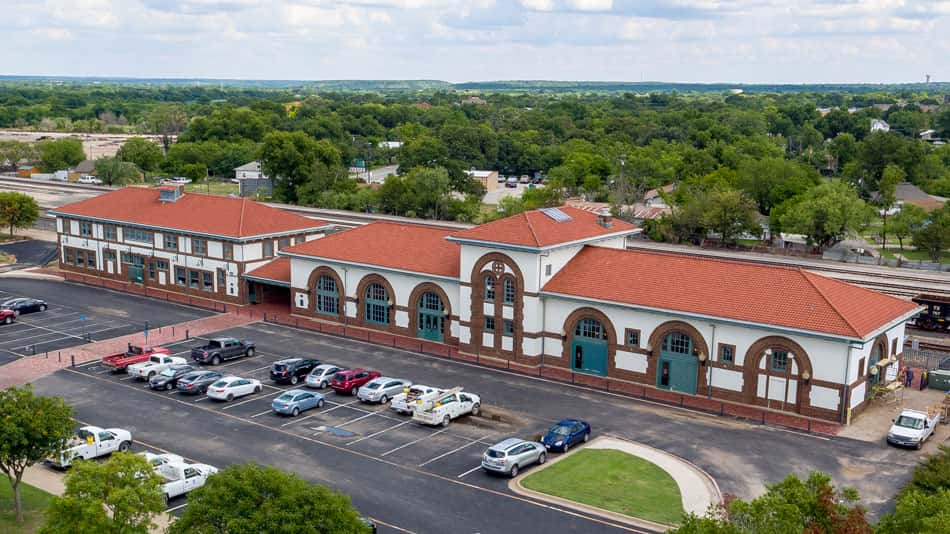
Brownwood News – The Brownwood Area Chamber of Commerce, after missing several of its monthly luncheons because of the COVID-19 pandemic, revived the event today. Approximately 75 persons were in attendance. As the Chamber begins to re-open, appropriately it scheduled an presentation on “Managing COVID-19 in the Workplace.”
The presenter was Stephanie Doss, of Landmark Life. Ms. Doss is President of the local chapter of the Texas Society of Human Resource Management.
As of yesterday, June 18, the United States has had 2,104, 346 persons diagnosed with COVID-19, and 116,147 deaths. In Texas the numbers are 89,108 diagnosed and 1,983 deaths. About 1/3 of the cases in Texas are in Dallas and Houston.
Doss showed a graph labeled “Phases of the Pandemic,” pertaining to the workplace, which runs from the Alert Phase, to the Pandemic Phase, to the Transition Phase, and finally to the Interpandemic Phase. We are currently in the Transition Phase, which is defined as “Interim workplace options are established to address reasonable protection in the workplace and individual levels of comfort around returning.”
In response to the pandemic, the U.S. Congress passed two laws that address time missed from work due to COVID-19. The Emergency Paid Sick Leave Act states that employees who are diagnosed with COVID shall have 80 hours of full-rate pay available to them for missed work. If the employee is staying home to care for a family member who is diagnosed, they will be paid at 2/3 of their normal rate. The pandemic missed time pay is not funded by the government, the law mandates that employers must pay for the time missed.
The Emergency Family and Medical Leave Expansion Act addresses employees who must stay home to care for minor children who cannot go to school or daycare. To receive this pay, the employee must have a Qualifying Need, defined as “limited to circumstances where an employee is unable to work (or telework) to care for a minor child if the child’s school or place of childcare has been closed or is unavailable due to a public health emergency.” Such employees are eligible for up to 12 weeks of emergency leave. The first two weeks are unpaid. The employer can then require the employee to exhaust any Paid Time Off available to them (vacation, sick days, personal days, etc.). The rest is paid at 2/3 of the employee’s regular rate, with certain caps and maximums.
Doss then addressed how employers should handle the re-opening of their business and employees returning to work. Businesses should, as much as possible, honor 6-foot distancing, using scheduling options if possible to reduce the number of employees at work at one time. The businesses then need to establish and communicate new office protocols such as face masks and gloves, safe procedures for food and beverages in the workplace, and careful protocols for visitors, deliveries, and maintenance.
Doss closed by saying that OSHA (Occupational Safety and Health Administration) recommends that employers carefully follow the guidelines recommended by the Center for Disease Control. If an employee does contract COVID-19, the employer will probably not be held liable if the CDC guidelines are followed.
Prior to Doss’ presentation, the Chamber held its popular Aces Wild drawing. The winning jackpot is now over $8000, but the winning card was not drawn. The next Aces Wild drawing will be held at the Chamber luncheon in August.
Wendlee Broadcasting was the presenting sponsor for today’s luncheon.